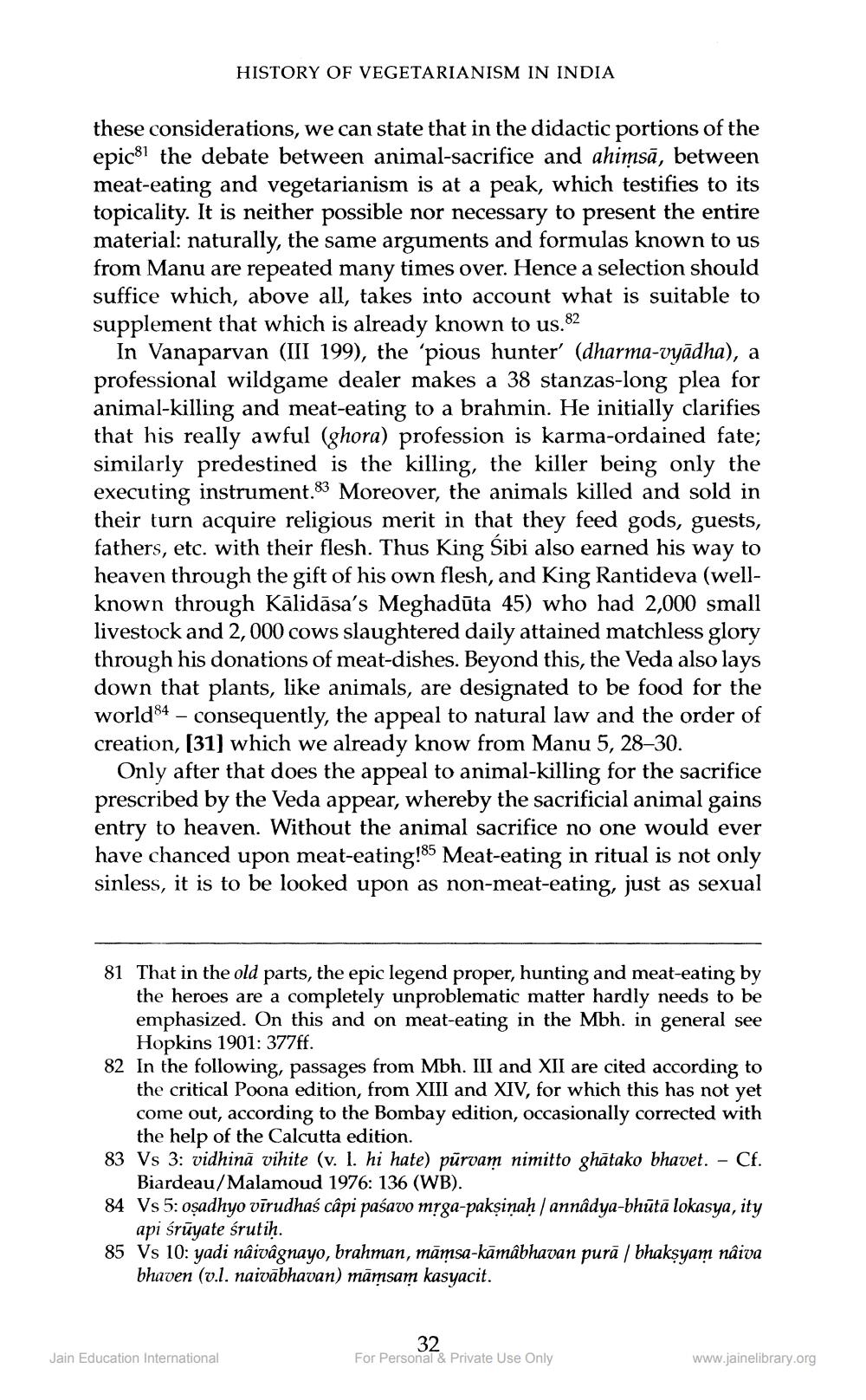________________
HISTORY OF VEGETARIANISM IN INDIA
these considerations, we can state that in the didactic portions of the epic8l the debate between animal-sacrifice and ahimsā, between meat-eating and vegetarianism is at a peak, which testifies to its topicality. It is neither possible nor necessary to present the entire material: naturally, the same arguments and formulas known to us from Manu are repeated many times over. Hence a selection should suffice which, above all, takes into account what is suitable to supplement that which is already known to us.82
In Vanaparvan (III 199), the 'pious hunter' (dharma-vyādha), a professional wildgame dealer makes a 38 stanzas-long plea for animal-killing and meat-eating to a brahmin. He initially clarifies that his really awful (ghora) profession is karma-ordained fate; similarly predestined is the killing, the killer being only the executing instrument. 83 Moreover, the animals killed and sold in their turn acquire religious merit in that they feed gods, guests, fathers, etc. with their flesh. Thus King Sibi also earned his way to heaven through the gift of his own flesh, and King Rantideva (wellknown through Kālidāsa's Meghadūta 45) who had 2,000 small livestock and 2,000 cows slaughtered daily attained matchless glory through his donations of meat-dishes. Beyond this, the Veda also lays down that plants, like animals, are designated to be food for the world84 – consequently, the appeal to natural law and the order of creation, [31] which we already know from Manu 5, 28–30.
Only after that does the appeal to animal-killing for the sacrifice prescribed by the Veda appear, whereby the sacrificial animal gains entry to heaven. Without the animal sacrifice no one would ever have chanced upon meat-eating!85 Meat-eating in ritual is not only sinless, it is to be looked upon as non-meat-eating, just as sexual
81 That in the old parts, the epic legend proper, hunting and meat-eating by
the heroes are a completely unproblematic matter hardly needs to be emphasized. On this and on meat-eating in the Mbh. in general see
Hopkins 1901: 377ff. 82 In the following, passages from Mbh. III and XII are cited according to
the critical Poona edition, from XIII and XIV, for which this has not yet come out, according to the Bombay edition, occasionally corrected with
the help of the Calcutta edition. 83 Vs 3: vidhinā vihite (v. I. hi hate) pūrvam nimitto ghātako bhavet. - Cf.
Biardeau/Malamoud 1976: 136 (WB). 84 Vs 5: osadhyo vīrudhaś câpi paśavo mrga-pakṣiṇaḥ / annâdya-bhūtā lokasya, ity
api śrūyate śrutih. 85 Vs 10: yadi nâivâgnayo, brahman, māmsa-kāmâbhavan pura / bhaksyam nâiva
bhaven (v.l. naivābhavan) māmsam kasyacit.
32
Jain Education International
For Personal & Private Use Only
www.jainelibrary.org




